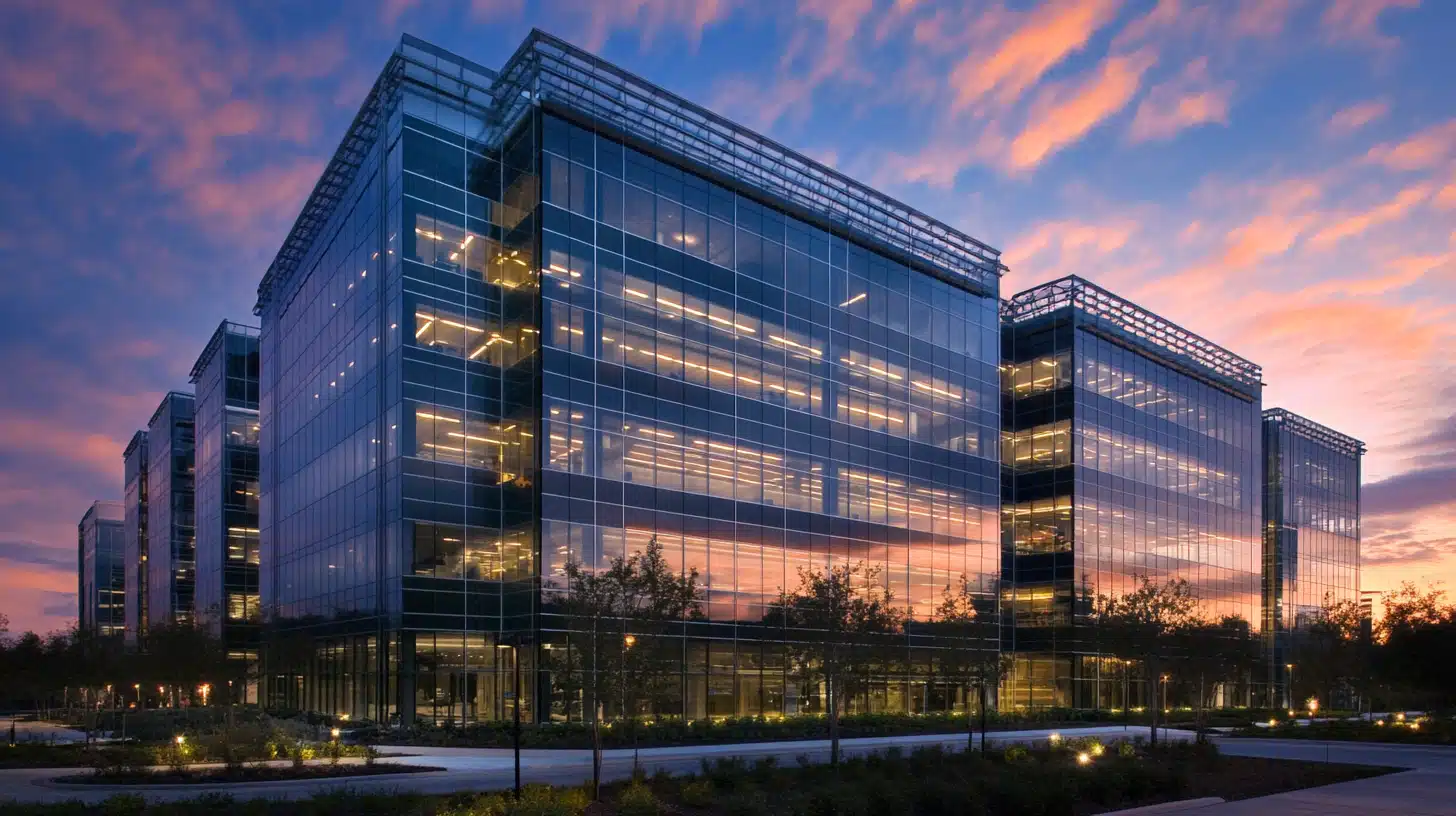Have you ever wondered what drives our cities’ vitality? The buildings where people work, shop, and eat are equally as busy as the people themselves.
Beyond the realm of residential real estate, metropolitan regions can be shaped by commercial real estate (CRE). Knowing the ins and outs of commercial real estate might be your first step into a wider world of financial possibility.
Whether you’re simply curious, have a goal of investing, or want to start a business, it’s essential to understand the elements of commercial real estate. Here, we’ll provide a quick overview of what commercial real estate is all about.
The Key Types of Commercial Real Estate
The key types of commercial real estate each serve a distinct purpose within the market. Additionally, different types of commercial real estate may correspond with varying zoning regulations of particular cities.
- Office spaces are pivotal for businesses seeking a professional base for their companies.
- Retail spaces are essential for merchants and entrepreneurs looking to connect with their customer base in a dynamic shopping environment.
- Industrial spaces, crucial for manufacturing and logistics, require specialized knowledge to identify properties with the right mix of space, access, and amenities for operations and distribution.
- Multifamily rentals represent a unique segment within commercial real estate, offering investors opportunities for income through residential leasing on a scale.
For all types of commercial real estate, collaborating with realtors in Hartford, CT, can help you find the ideal location.
What is Commercial Real Estate?
Properties utilized only for business-related purposes and intended to produce income through capital gains or rental income are referred to as commercial real estate (CRE). This industry encompasses a broad range of real estate, including retail establishments, office buildings, industrial warehouses, and rental multifamily residential apartments.
Commercial real estate meets the demands of investors and businesses, as opposed to residential real estate, which is primarily geared toward individuals. These properties might be anything from a tiny shop on a city street to vast industrial parks and shopping malls.
Because it gives businesses the physical space they need to function, expand, and improve the urban environment and local communities, commercial real estate (CRE) is vital to the economy.
Retail Spaces: Where Commerce Meets Community
Retail establishments are essential centers for social interaction and economic activity because they are the intersection of trade and community. These settings, which range from big shopping malls and centers to small neighborhood stores and boutiques, are all made to provide customers with a wide selection of goods and services in one place.
Retail spaces must be accessible and welcoming in order to draw customers and promote spending, thus their layout and placement are crucial. Additionally, they give companies a physical link to their clientele, facilitating face-to-face communication and the development of brand loyalty.
In essence, retail establishments serve as more than just places to shop; they are places for people to get together and share their culture and tastes. They also play a significant part in determining the local economy and creating a feeling of community among locals.
Office Spaces: The Professional’s Playground
Office spaces, sometimes known as the professiona’s playground, are essential to the commercial real estate market because they offer settings that encourage innovation, productivity, and company expansion. These locations, which serve a wide spectrum of companies from start-ups to large multinational enterprises, span from office parks in the suburbs to high-rise buildings in busy city centers.
Finding the ideal site that fits with their operational requirements and corporate culture is essential for companies wishing to launch or grow. Professional advice can help businesses negotiate the wide and diverse office space market. Check out the list of real estate agents in Connecticut that offers a starting point to find experienced professionals who specialize in commercial properties.
Industrial Spaces: The Backbone of Production
Industrial areas are necessary for the production, distribution, and warehousing processes that keep the economy afloat.
Large, open areas, high ceilings, and frequently being situated in industrial parks or next to transportation hubs like ports, trains, and highways are characteristics of these structures. Industrial spaces are built with efficiency and usefulness in mind.
They can store merchandise, handle heavy machinery, and make shipping and receiving operations easier. They are essential to the supply chain because they give companies the infrastructure they need to produce items, control inventory, and ship them to domestic and international markets.
An essential part of the global economy, industrial spaces must be strategically located and adequately equipped to meet the growing demand for goods.
Special Purpose Real Estate: The Unique Spaces
A distinct and varied range of property types created especially to support uses beyond the commercial norm, such as healthcare, education, entertainment, and religious activities, are included in special purpose real estate.
These properties differ from typical commercial or residential real estate since they are designed for their particular use and have unique infrastructure, zoning laws, and designs. For example, in order to properly fulfill their specific functions, schools, hospitals, theaters, and churches all need different architectural elements, technical capabilities, and space configurations.
To satisfy the unique needs of its users and communities, special-purpose real estate development and maintenance may include complex planning and regulatory compliance. As a result, these areas greatly enhance the social cohesion and general well-being of the communities they serve, in addition to facilitating necessary services and cultural events.
Why Invest in Commercial Real Estate?
For investors seeking diversification, steady income, and possible capital growth, commercial real estate presents an alluring prospect. Commercial real estate offers the advantage of lengthier lease arrangements with tenants, which can result in a more dependable and consistent revenue stream than residential buildings.
Commercial properties also frequently have the benefit of allowing renters to pay for expenses like maintenance, insurance, and property taxes, which lessens the investor’s financial load. Commercial real estate is a tangible asset that can increase in value over time as the need for space increases and the economy improves since its worth is directly related to its usability and the revenue it produces.
Additionally, as property values and rents usually rise in tandem with inflation, investing in commercial real estate enables investors to protect their money from inflation and ensures that the investment’s value is maintained over time.








